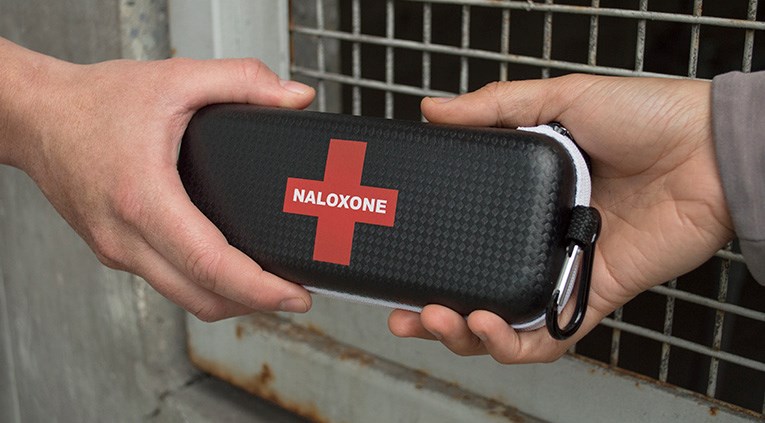Fraser Health is ramping up its strategy to combat a growing epidemic of drug overdoses in the region by increasing the administration of and accessibility to naloxone at local emergency departments and through first responders.
"There is no single solution to the public health emergency we are facing," announced Dr. Victoria Lee, chief medical health officer, early this week in response to a rash of fentanyl overdoses. Last week five people in a Coquitlam home were found to have overdosed on multiple substances, though it wasn't confirmed whether fentanyl was involved, and on this week Surrey saw 36 overdoses in just two days.
"It is a complex concern that requires a multi-faceted approach to prevent overdoses, encourage supervised consumption and provide treatment options," Lee said.
The strategy began last fall, when Fraser Health inreased the number of take-home naloxone kits to patients attending emergency rooms for overdoses. All 12 Fraser Health ERs are now equipped to dispense take-home naloxone kits.
In January to May of this year 857 take-home kits were dispensed in ERs throughout the region, 10 times what was issued in the same time in 2015.
A BC Centre for Disease Control representative said Eagle Ridge Hospital is a fairly new addition to the program and has not yet dispensed any of the kits.
Local first responders are also being armed with the opioid antidote.
Port Coquitlam fire fighters were trained to administer injectable naloxone about two months ago, shortly after crews in Vancouver and Surrey.
"It's paid huge dividends already," said Chief Nick Delmonico. "We've used it probably 10 or 12 times in the last couple of months. There were two or three in just one week, and we had one the minute we finished training — we finished it at 6 p.m. and at 7:30 p.m. the crew went out on a call and used it."
Coquitlam Fire Rescue Chief Wade Pierlot said they are monitoring the situation closely but haven't seen a strong need for it yet.
"Our fire crews have always had the ability to use the bag valve mask…to keep people breathing," he added, noting a similar strategy was used in his days as a firefighter in Vancouver's Downtown Eastside when responding to widespread heroin overdoses.
"We have the ability to maintain life without naloxone…and many facilities that we're called to already have it as well," Pierlot said, noting the shelter at 3030 Gordon Ave. is equipped to deliver naloxone.
Having first responders like police and fire fighters deliver naloxone at the scene can also be a bit tricky, Pierlot said, since the fentanyl appears to be getting stronger and requiring multiple applications of the antidote or having it delivered in a hospital setting, "so we're still just keeping breathing…we're still waiting for the ambulance because any overdose has to go to the hospital."
Still, Pierlot noted Coquitlam crews can be trained within about two weeks in the naloxone regimen if necessary.
Port Moody Fire Rescue is in the midst of its training, after which all crews will be able to administer the drug and expect to be fully operational by the end of the summer, said Deputy Chief Gord Parker.
Port Moody Police officers will be equipped with the nasal spray version of naloxone, but only for personal use should they or another officer need it after coming into contact with fentanyl, said Chief Const. Chris Rattenbury.
"Regarding administering to the public, I am not sure yet what those kits would look like — discussion, amongst many of the police departments, has been around the intranasal spray again, so then that would just require some policy/protocols to be put in place," Rattenbury said in an email to The Tri-City News. "However, should we decide to look at the injectable kits then that would definitely require a more substantial training program."
Speaking for Coquitlam RCMP, Cpl. Janelle Shoihet of E Division Communication Services said they are reviewing the policy on RCMP officers carrying and administering naloxone "and the implication for both police officer and public safety."
In the coming months Fraser Health will be implementing a campaign to target at-risk populations, including seasoned and recreational drug users, curious or at-risk users and their friends and family.
[email protected]
@spayneTC



